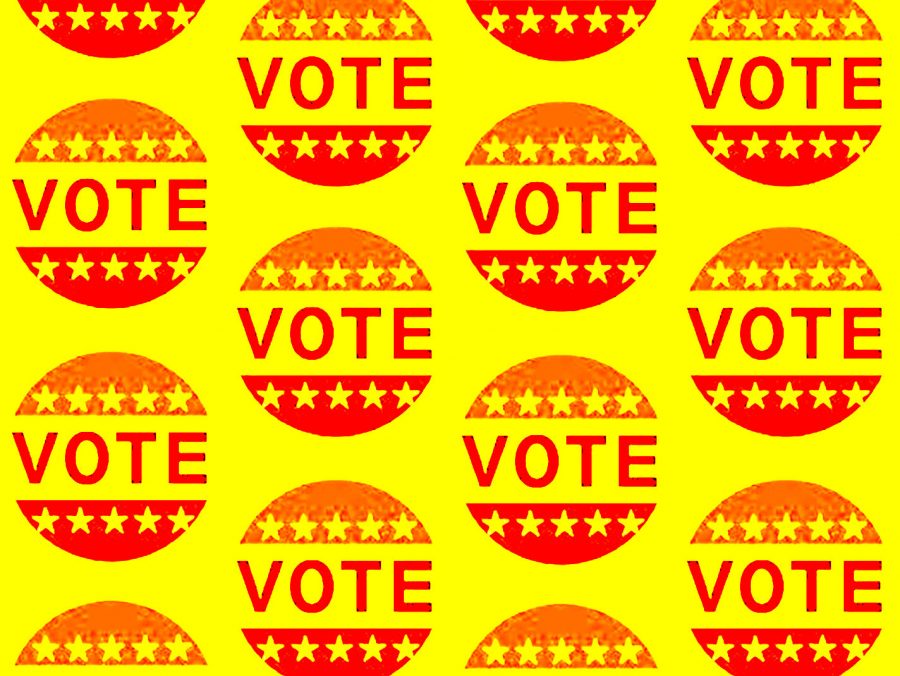Reese: Why Change Our Voting Laws?
February 19, 2021
The 2020 election is over and state lawmakers across the country are already working to make it harder to vote. Utah legislators have three notable bills that will change the way Utahns vote. Democratic Rep. Brian King is running H.B. 203 “Mail-in Ballot Amendments,” which would clean up the rules about the dates by which ballots must be postmarked to be valid. Republicans are running H.B. 70 “Ballot Tracking Amendments” and S.B. 49 “Mobile Voting Pilot Project.” H.B. 70 would allow voters to opt-in to an automated system that would tell voters when their ballot has been counted and S.B. 49 differs from the house bills as it is a pilot project to testing an electronic remote voting system in upcoming municipality elections. Two of these bills will help improve voting for Utahns, but one poses a risk to secure and fair elections.
Making Every Vote Count
Rep. King’s bill, “Mail-In Ballot Amendments,” would standardize the rules around postmark dates for mail-in ballots. As it currently stands, it has to be postmarked the day before Election Day, but his bill would change it to the day of the election. Niki Venugopal, Voting Rights Coordinator at the ACLU of Utah, says that “it’s a commonsense piece of legislation.” As she explained to me, people can vote in person on Election Day, so mailing in your ballot on Election Day should count as a valid vote too.
Over 50,000 votes nationwide were thrown out because they arrived late in 2020. In a Pew Research study, 16% of voters faced issues when it came to voting by mail. A young voter interviewed in the study expressed frustration when his ballot wasn’t mailed to him in time to be mailed back by the needed postmark date. He chose to instead drop it off at a polling location. H.B. 203 will help make sure a voter, like the one described in Pew Research’s study, could mail in their ballot on Election Day and the vote would be counted, without having to drive to a polling place. You can vote in-person on Election Day, so postmarking a ballot on the same day should count as well. Rep. King’s bill is what should have been the law all along. It makes no sense to disqualify and void votes of Utahns that had their ballots postmarked on Election Day. The whole point of Election Day is to be able to vote and have your vote count.
Track Your Ballot
H.B. 70, “Ballot Tracking Amendments,” aims to make it easier to track your ballot and is being run by Rep. Dan Johnson with support in the Senate from Sen. Scott Sandall. If this bill is passed, when voters are registering or updating their registration, they would be able to sign up to get notifications via text message or email about the status of their ballot. “It helps maintain that confidence in the integrity of our elections,” says Venugopal. Currently, voters have to go online to locate their ballot status on their own. People would be able to instantly know if their ballot wasn’t properly received.
California allows for voters to get notifications by text already. During the 2020 election in California, the ability of text tracking was a target of scams. Californians were sent messages posed as if they were coming from the United States Postal Service or from an election office. These scam texts would then take advantage of unknowing voters to siphon off personal information. While this is of course a risk for H.B. 70, people always have the responsibility to look for fraud — such as “the government” asking you who you voted for, or giving some prize for providing the information. Any government local or statewide would not need this information in order to track and verify your ballot. Despite any narrow chance of con artists, H.B. 70 will help Utah voters trust that their voice was heard in the election.
Testing New Voting Methods
Sen. Curtis Bramble and Rep. Mike Winder are running S.B. 49, “Mobile Voting Pilot Project,” which differs from the previous house bills as it would allow for municipalities to use mobile voting in their elections. Venugopal mentions that this system is currently used by some areas of Utah to conduct votes for disabled Utahns and Utahns serving overseas. Municipalities under this bill could use this method to conduct their upcoming general elections for city government.
Venugopal, however, has some concerns about expanding this to a general voting population. “Cybersecurity experts agree that there is no known secure method of internet-based voting,” she says. Her claim is backed up by the National Academies of Sciences, Engineering, and Medicine who say that electronic voting is not ready for use in U.S. elections. Furthermore, election officials in Utah who do allow for some form of online voting use the app Voatz. MIT researchers have studied Voatz and found that the software is susceptible to hacking while also risking the personal information of voters who use it. We need to make sure voting is accessible to everyone, particularly those from marginalized groups, but the Mobile Voting Project does not have enough security and oversight to accomplish holding a secure election.
Both the Mail-Ballot Amendments and Ballot Tracking Amendments are bills designed to help Utahns in the voting process. More votes would be counted under Rep. King’s bill by allowing for mail-in ballots to be postmarked by Election Day. The Ballot Tracking Amendments gives voters access to know the status of their ballot from a text message helping ensure transparency in how Utah runs elections. However, we do not have the cybersecurity ready to ensure secure municipality elections as outlined in Sen. Bramble and Rep. Winder’s Mobile Voting Pilot Project. Utah lawmakers would be wise to pass Rep. King and Rep. Johnson’s bills to help Utahns vote with transparency and trust in our electoral system.








